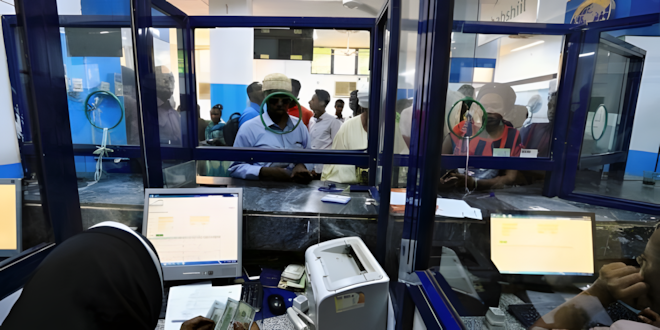US sanctions disrupt the foreign exchange market as dollar reaches a record high

The foreign exchange market in Sudan has been in a state of disruption and uncertainty, affected by the recent US decision to impose sanctions on the de facto authority in Port Sudan, starting next June. The decision includes a package of punitive measures, including denying Sudan US loans and grants, prohibiting access to US credit lines, restricting exports, freezing assets, and denying Sudan access to US or US-backed international financing, particularly through credit lines or financial facilities.
These sanctions are expected to take effect on (June 6th, 2025), following their publication in the US Federal Register.
Traders in the parallel currency market reported that foreign currency prices, particularly the dollar, witnessed a significant increase of nearly (3,000 sdg), as the dollar price ranged between (2,800 and 2,900 pounds) at the end of trading yesterday. The Saudi riyal was trading at (730 pounds), while the Emirati dirham was trading at (746 pounds). The euro was trading at (3,078 pounds), whilst the British pound was trading at (3,653 pounds). In addition, the Egyptian pound was trading at (54 pounds).
A banking expert confirmed to (Medameek) that banks have begun to hedge against the expected effects of US sanctions, as these sanctions will lead to Sudan’s withdrawal from the global financial system. Sudanese banks will naturally lose the ability to open letters of credit for the purchase of goods and the execution of official bank transfers, preventing them from dealing with intermediary institutions in foreign trade.
Furthermore, Sudan will also be barred from receiving aid or loans from international financial institutions, in addition to banning transactions in US dollars. This comes at a time when concerns are growing about the impact of sanctions on the sector and foreign investment, as the sanctions include freezing the assets of government and private individuals.
The banking expert went on to point out that American companies will be prohibited from exporting technologies or products to Sudan, such as electronic equipment and modern technologies. Economists have called for the State to address its dealings with China and Russia and implement economic reforms, including reforming the banking system, combating corruption, and supporting local industries in an effort to reduce reliance on imports.





